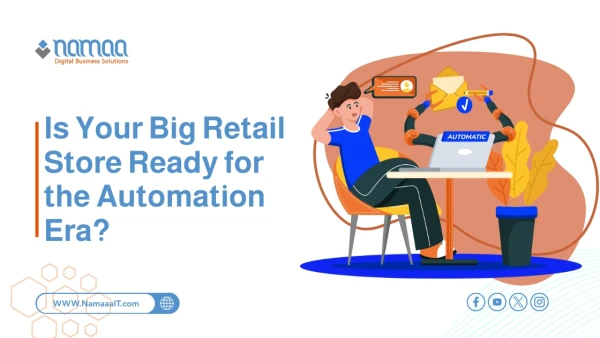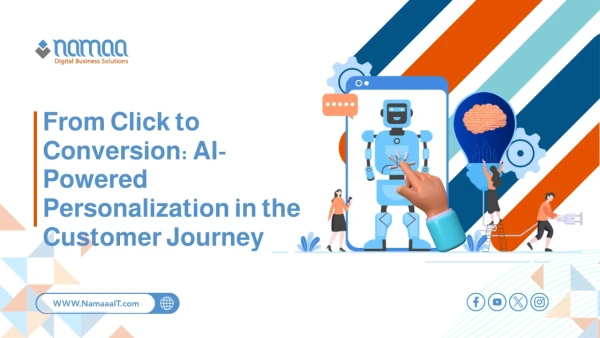In 2025, artificial intelligence is no longer a futuristic luxury or optional upgrade—it’s an essential tool for any business that wants to remain competitive and outperform its rivals. Whether you're managing a startup or a large enterprise, using the right AI tools can save time, cut costs, and dramatically boost productivity. In this article, we highlight the most impactful AI tools for the upcoming year and explain how to choose the ones that align best with your business goals.
AI Tools for Business Analytics
Data analysis is no longer just a complex statistical task for specialized teams—it’s now central to everyday business decision-making. AI-powered tools like ThoughtSpot and Power BI go beyond traditional reporting, offering instant, actionable insights through natural language queries and contextual intelligence.
With ThoughtSpot, users can ask questions like “Which campaign had the highest ROI last quarter?” and receive immediate, visual, and data-rich answers. It uses AI to interpret complex datasets within a business context, enabling faster and more accurate decisions.
Power BI integrates seamlessly with platforms like Excel, Azure, and Google Analytics. It also provides predictive modeling for strategic planning. By 2025, businesses not using smart analytics tools will lag behind competitors who rely on data-driven decisions over guesswork. These tools are now a strategic necessity, not just a technical bonus.
AI Tools for Design & Visual Marketing
In the era of visual speed and digital interaction, design is no longer just an artistic task—it’s crucial for customer experience and brand identity. AI tools like Midjourney, Adobe Firefly, and Canva Magic Studio have revolutionized how visuals are created.
- Midjourney allows marketers to generate stunning images using simple text prompts, enabling rapid prototyping of visual ideas.
- Adobe Firefly integrates into Adobe’s suite, offering smart interfaces and deep learning-based editing of images and text.
- Canva Magic Studio includes auto-editing, element reorganization, and AI-driven content suggestions.
These tools save time, boost quality, and empower creative teams with the flexibility to quickly iterate on ideas. In 2025, AI design tools will be vital for brands to stay responsive to shifting market trends and visual expectations.
Read also: The importance of online store speed
Smart Project Management Tools
Project management in 2025 is faster, more complex, and more collaborative than ever. AI-powered platforms like Asana, ClickUp Brain, and Trello automate workflows, intelligently assign tasks, and even forecast risks.
- Asana provides smart recommendations, progress tracking, and performance analytics with interactive boards.
- ClickUp Brain functions as a knowledge hub—managing tasks, files, notes, and conversations with AI that adapts to your team’s behavior.
- Trello, though simple, uses smart add-ons like Butler to automate repetitive actions and improve workflow efficiency.
These tools significantly reduce manual coordination time and let teams focus on delivering results. AI-driven project management is no longer optional—it’s a key driver of success in today’s dynamic work environment.
AI Tools for Scheduling & Time Automation
Managing time has become increasingly challenging, especially with remote work and back-to-back virtual meetings. Tools like Reclaim and Clockwise use AI to optimize daily schedules and prioritize deep work.
- Reclaim auto-reschedules events to protect focus time and even sets aside personal breaks or solo task blocks based on usage patterns.
- Clockwise analyzes team calendars to reduce scheduling conflicts and improve work-life balance.
These tools benefit everyone, not just executives or tech teams. By 2025, many managers will rely on AI not only to track time but to redesign the entire workday for maximum efficiency with minimal effort.
AI Chatbots & Customer Support
Customers now expect seamless, 24/7 support, and AI chatbots like Tidio AI, ChatGPT, and Chatbase deliver just that. These bots go beyond scripted replies—they understand context, handle requests, and deliver personalized interactions.
- Tidio AI combines automation with live support escalation to handle both simple and sensitive queries.
- ChatGPT offers unmatched flexibility and can be trained on your internal data to speak in your brand’s voice.
- Chatbase enables quick setup of chatbots from your website content or internal databases.
These tools reduce wait times, improve customer experience, and cut support costs. They also analyze interaction patterns to deliver actionable product or service feedback. AI support systems are scalable and ready for the demands of 2025.
AI Email Optimization Tools
AI email tools like HubSpot Email Writer and Lavender.ai are transforming how businesses write and optimize emails.
HubSpot Email Writer uses engagement data to suggest tone, messages, and even timing tailored to specific audience segments—boosting open and response rates.
Lavender.ai reviews emails for tone, clarity, and length, providing instant effectiveness scores. It also optimizes subject lines and send times based on behavioral analytics.
In a competitive digital world, these tools give marketers a powerful edge to improve email performance consistently and make every customer touchpoint more effective.
Smart Hiring Systems
AI is revolutionizing hiring in 2025, turning resume screening and job description writing into smarter, more equitable processes.
- Textio enhances job ads with inclusive language suggestions and avoids biased wording that may deter qualified candidates—helping attract diverse talent.
- CVViZ uses contextual AI to match resumes with job requirements quickly, eliminating hours of manual screening and presenting top candidates via intelligent dashboards.
As competition for top talent intensifies, AI recruitment tools are becoming essential to ensure efficient and fair hiring processes.
AI Advertising & Campaign Creation Tools
With ever-evolving digital marketing demands, AI ad tools like AdCreative.ai and Ocoya provide smart solutions for producing high-performing promotional content.
- AdCreative.ai generates ad copy and visuals automatically based on performance data, optimized for platforms like Facebook, Instagram, and LinkedIn.
- Ocoya combines content creation with scheduling, using AI to suggest trending topics and hashtags. Both tools support A/B testing for real-time campaign optimization.
In a world where timing and targeting are everything, these tools give marketing teams a powerful edge to achieve fast, measurable results.
FAQs
Can AI tools support multilingual communication and translation?
Yes—tools like DeepL and Google Translate AI are highly accurate and help companies expand globally and support multilingual customer bases.
Are AI tools safe for handling company data?
Most modern AI tools comply with regulations like GDPR and offer advanced encryption. Still, always review privacy policies and control user access carefully.
Are AI tools suitable for small businesses or just large enterprises?
Most tools today offer flexible pricing models and even free tiers—making them accessible to startups and small businesses.
Summary
✅ Over 70% of businesses use tools like Power BI and ThoughtSpot to make faster, data-driven decisions.
✅ AI design tools like Midjourney and Canva Magic Studio have reduced visual content production time by up to 60%.
✅ Smart project platforms like ClickUp Brain and Asana helped teams cut coordination time by 30–40%.
✅ Scheduling tools like Reclaim and Clockwise saved employees 2–3 hours weekly on average.
✅ Chatbots like ChatGPT and Tidio AI have reduced customer support costs by up to 50% in fully automated service models.

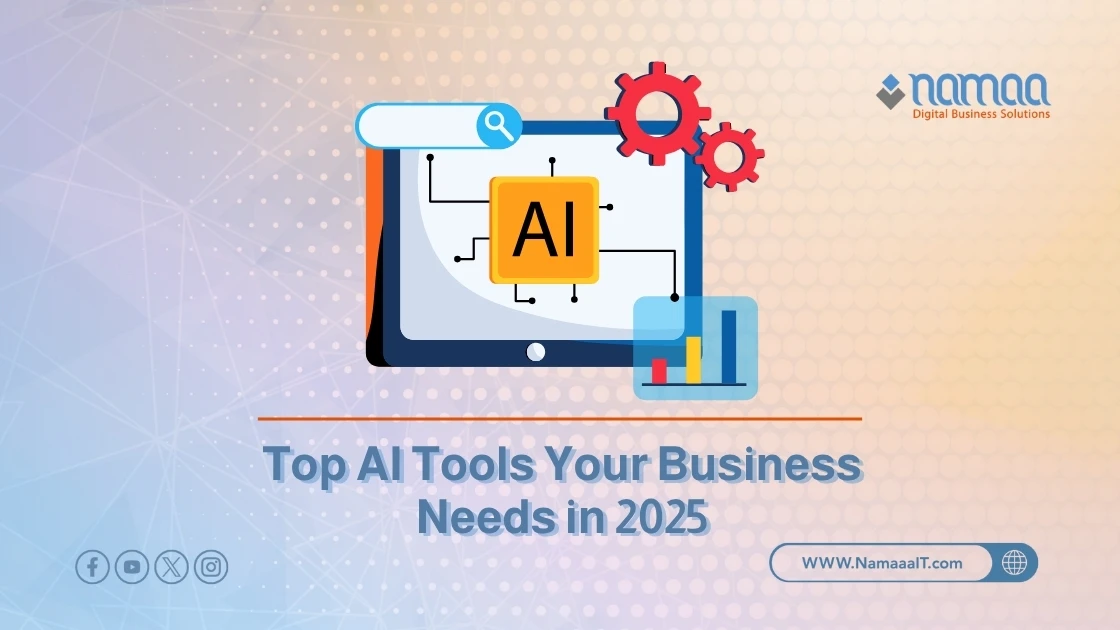


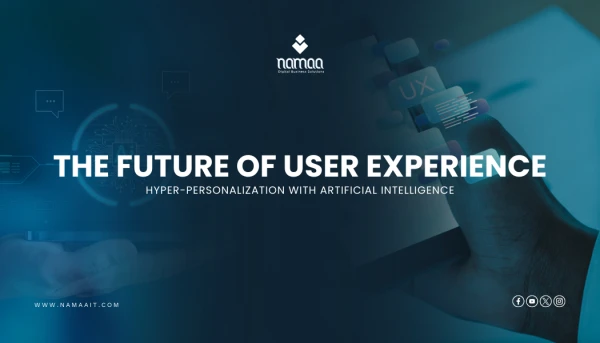
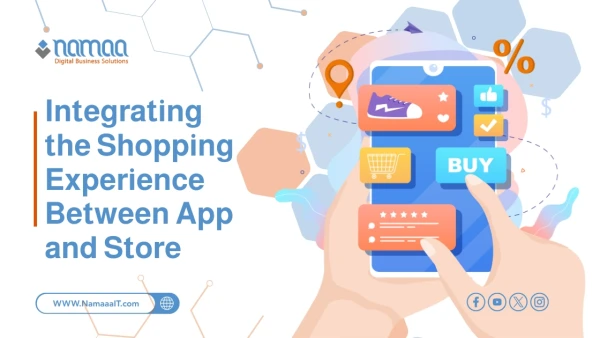
.webp)
